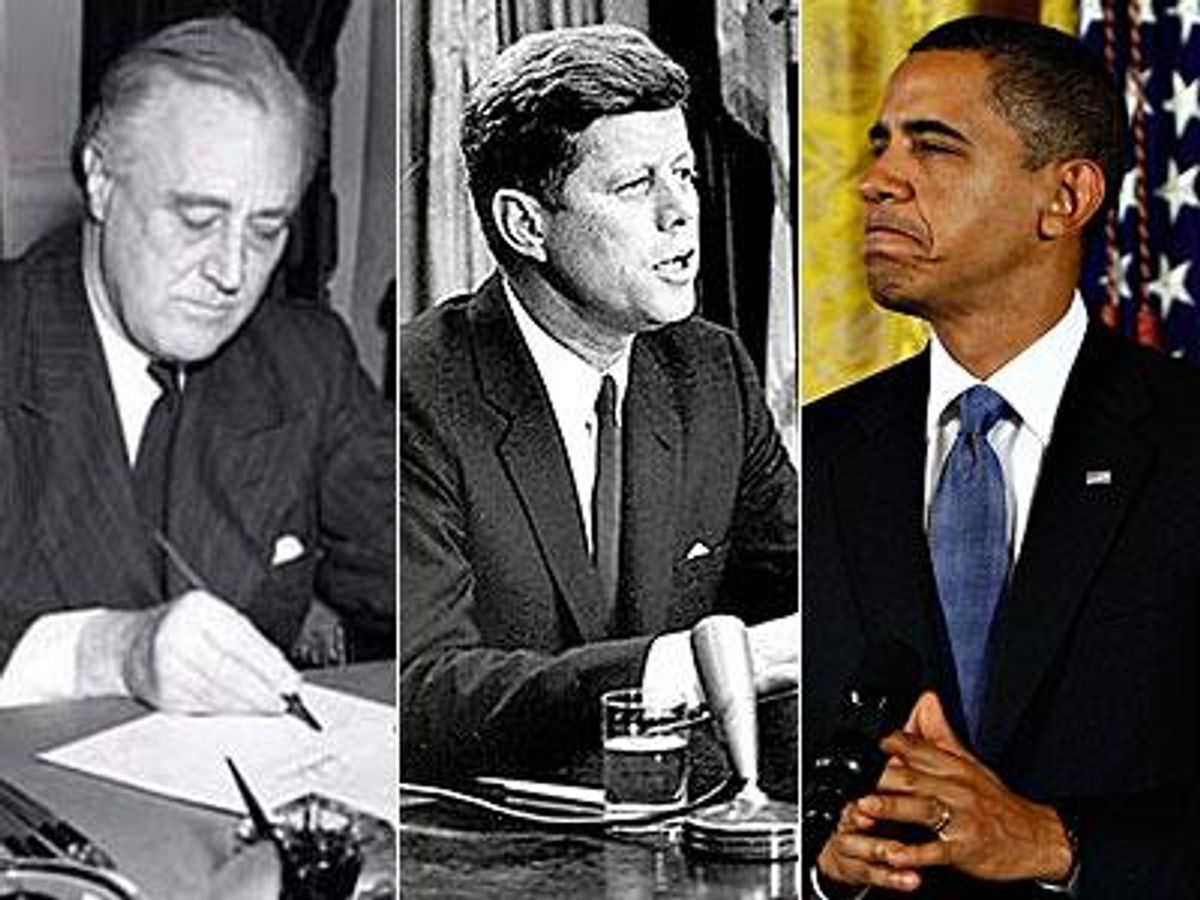
June 25, 1941
President Franklin D. Roosevelt signs Executive Order 8802 prohibiting racial discrimination in the national defense industry.

July 26, 1948
President Harry S. Truman signs Executive Order 9981 abolishing racial discrimination in the United States Armed Forces.
 May 17, 1954
May 17, 1954The SCOTUS decision in Brown v. Board of Education declares laws establishing separate public schools for black and white students unconstitutional.
 March 6, 1961
March 6, 1961President John F. Kennedy signs Executive Order 10925, requiring government contractors to "take affirmative action" to ensure that applicants and employees are treated equally without regard to their race, creed, color, or national origin.
 July 2, 1964
July 2, 1964The Civil Rights Act of 1964 outlawed major forms of discrimination against racial, ethnic, national and religious minorities, and women, in public accommodations and the workplace.

August 6, 1965
The Voting Rights Act of 1965 prohibits discrimination in voting.
 September 24, 1965
September 24, 1965President Lyndon B. Johnson signs Executive Order 11246 requiring all federal contractors to ensure fair employment practices regardless of race, color, religion, sex, or national origin.
 June 12, 1967
June 12, 1967The SCOTUS decision in
Loving v. Virginia invalidates laws prohibiting interracial marriage.
 October 28, 2009
October 28, 2009President Barack Obama signs the Matthew Shepard and James Byrd, Jr. Hate Crimes Prevention Act, which extends federal hate-crime law to crimes motivated by gender, sexual orientation, gender identity, or disability.
 September 20, 2011
September 20, 2011The legislative repeal of "don't ask, don't tell," which prohibits openly gay, lesbian, or bisexuals from serving in the United States Armed Forces, goes into effect.
 June 26, 2013
June 26, 2013The SCOTUS decision in United States v. Windsor declares that restricting U.S. federal interpretations of "marriage" and "spouse" to apply only to heterosexual unions is unconstitutional.











